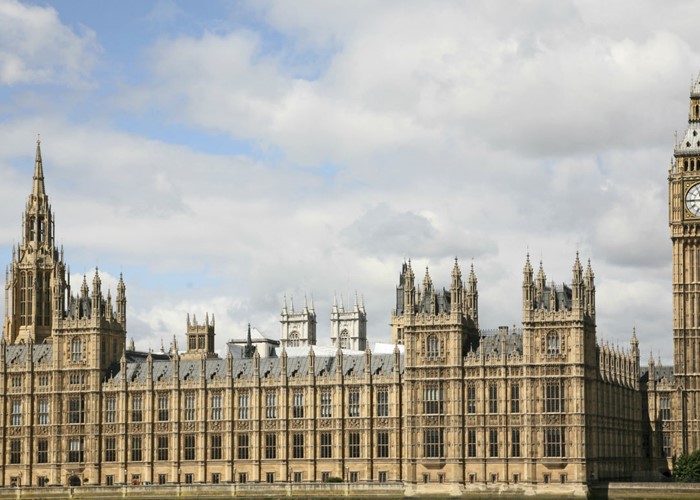We all lose out with the Northern Rock sale

The Chancellor is to sell Northern Rock back to the private sector. But is that the right thing to do?
Once upon a time, way back in the day, Northern Rock was a building society based in Newcastle upon Tyne. The society was owned by its members (savers) and run for their benefit by prudent Geordies.
Rocky times
However, following in the footsteps of bigger societies such as Halifax and Woolwich, Northern Rock demutualised in October 1997, becoming a PLC (public listed company) by listing its shares on the London Stock Exchange.
As a PLC, Northern Rock's profits boomed and it rose to become a member of the top-rank FTSE 100 index. Alas, during the latter stages of the housing bubble, the Rock started lending like a lunatic -- something I repeatedly warned of from 2005 onwards.
As a result, after the credit crunch struck in August 2007, Northern Rock became its first UK victim. In mid-September 2007, a run on the Rock saw frightened savers queuing for hours to withdraw their cash. As a result, the Rock begged for state aid and, in late February 2008, was fully nationalised by the British government.
Northern sale
Under public ownership, Northern Rock was carved into two parts. There was Northern Rock Asset Management (NRAM), a 'bad bank' into which was dumped all of its mad mortgages. Also, there was a 'good bank' made up of the Rock's customer deposits and around 70 branches.
Related blog post
- John Fitzsimons writes:
Why borrowers are failing to get mortgages
Guest blogger Ben Thompson of L&G Mortgage Club looks at the mis-match between borrower finances and mortgage availability, and how this is preventing them from accessing the property ladder.
Read this post
When nationalising the Rock, HM Treasury said that this was a 'period of temporary public ownership.'
Sure enough, in his Mansion House speech to the City of London last week, the Chancellor, George Osborne, announced the privatisation of Northern Rock. This will involve only the sale of the good bank; the toxic mortgages will remain with UKFI.
(It's worth noting that even the good bank lost £232 million last year.)
What this means for us
1. Taxpayers
During his speech, the Chancellor said that the government prefers to sell Northern Rock in one piece. However, he won't rule out other options, such as re-floating the bank on the stock market, or re-mutualisation of the Rock (making it a building society once again, owned by its members).
Related how-to guide

Buy a property
Buying a property is a massive financial commitment. Follow these tips and it should all go relatively smoothly!
See the guideTherefore, the Rock is almost certain to be sold to a financial buyer, such as Sir Richard Branson's Virgin Money, Tesco Bank, NBNK Investments or Metro Bank (the new bank on the block in London).
It's rumoured that the possible price tag for Northern Rock will be around £1 billion, which means that taxpayers will lose £400 million of our initial £1.4 billion capital injection into the bank.
To put this into perspective, a £400 million loss works out at under £15 for each of the UK's 27 million households. Indeed, our loss on Northern Rock is a drop in the ocean when compared to our running loss of £12.5 billion from bailing out Lloyds Banking Group and Royal Bank of Scotland.
2. Savers
While under public ownership, the Rock has been offering some very competitive interest rates on savings accounts. At times, the Rock's savings rates have been so high that some of its rivals -- particularly smaller building societies -- have cried foul.
Of course, being 100% owned by taxpayers, Northern Rock has an impeccable AAA credit rating, as it is 'backed by the full faith and credit of the British government.' However, once in private hands, the Rock's cost of borrowing money will rise, once it is forced to go it alone.
At this point, I suspect that its savings rates will become less attractive, as it concedes market share to bigger, stronger rivals. Hence, I reckon that Northern Rock's savers could lose out following its return to the private sector.
3. Borrowers
While greater competition in the banking sector should spell good news for consumers, Northern Rock's buyer would face an uphill struggle to attract customers.
In today's video, I'm going to highlight five things you should consider when choosing a savings account.
Costlier banking
Furthermore, the Chancellor has thrown his weight behind plans to split banks into separate retail-banking and investment-banking entities. This legal separation would detach high-street banking from 'casino' banking, making the UK's financial system more stable.
Alas, this 'shotgun divorce' of Barclays, HSBC and others is likely to make all banking products more expensive, thanks to the higher levels of capital these banks will have to hold.
In short, whichever organisation ends up buying Northern Rock, consumer banking is sure to get more expensive. In the short term, everyone's a loser!
More: Start saving for a rainy day | 2,385 savings accounts and they're nearly all rubbish | Pensions battered by basic bills
Comments
Be the first to comment
Do you want to comment on this article? You need to be signed in for this feature